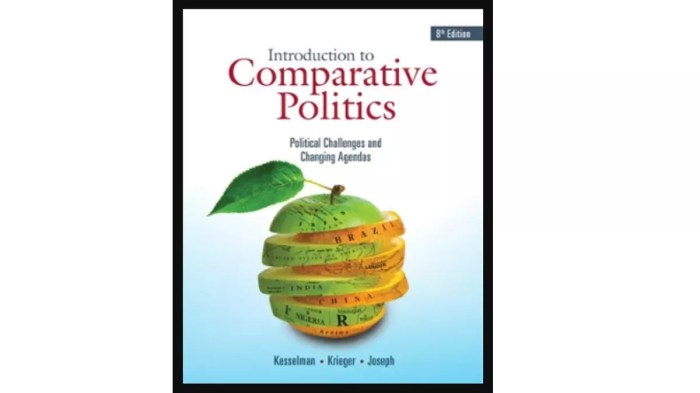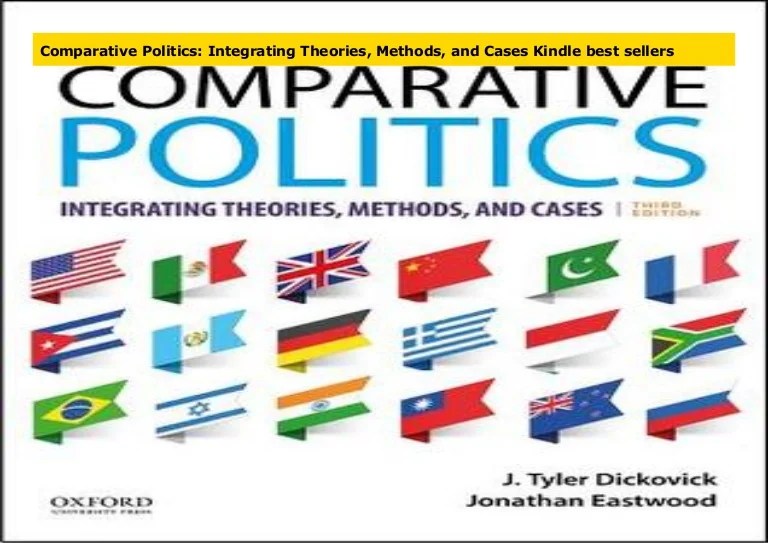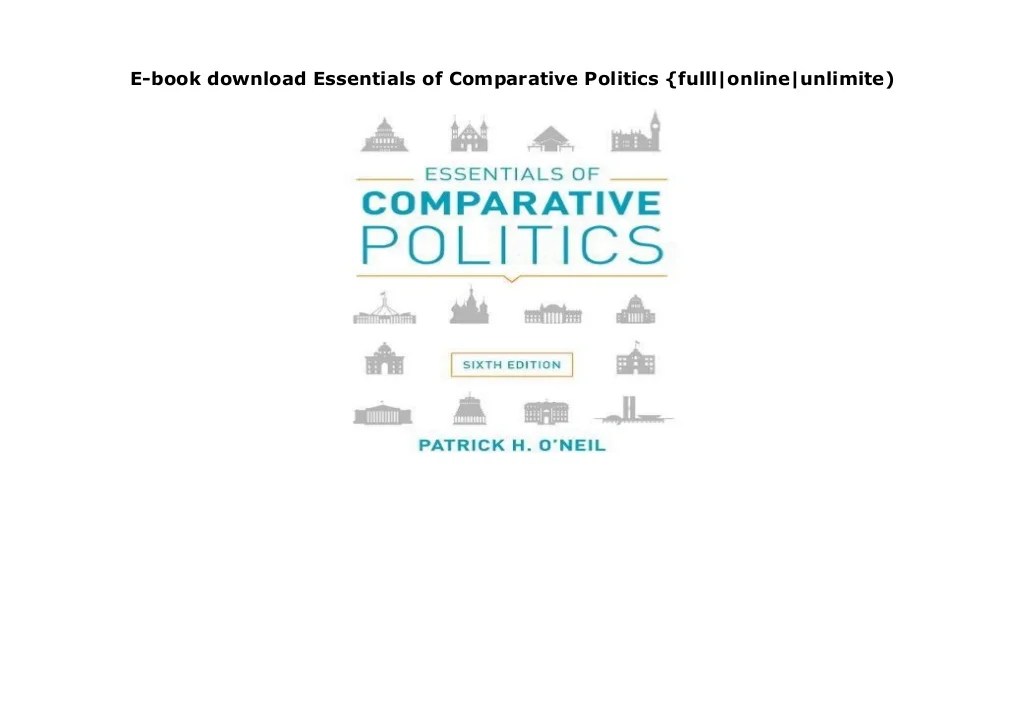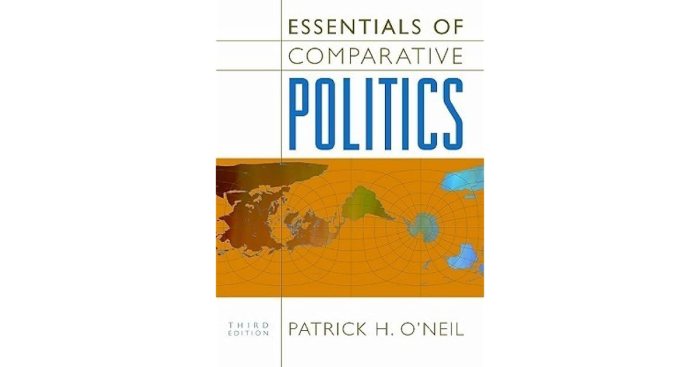Essentials of comparative politics 7th edition pdf – Delve into the fascinating world of comparative politics with the indispensable Essentials of Comparative Politics, 7th Edition. This comprehensive guidebook unveils the intricacies of political systems and governance, offering a profound understanding of the diverse ways societies organize and exercise power.
From the fundamental concepts of comparative politics to the analysis of contemporary global issues, this meticulously crafted text provides a panoramic view of the field, equipping readers with the knowledge and analytical tools to navigate the complexities of the political landscape.
Comparative Politics: Definition and Scope

Comparative politics is a subfield of political science that studies the similarities and differences between political systems. It seeks to understand how political institutions, processes, and outcomes vary across countries and over time. Comparative politics is essential for understanding the world’s political diversity and for developing theories about how political systems work.
There are a variety of different approaches and methods used in comparative politics. Some scholars focus on comparing individual countries, while others compare groups of countries or regions. Some scholars use quantitative methods, such as statistical analysis, to compare political systems, while others use qualitative methods, such as case studies, to examine specific political phenomena.
Comparative politics has been used to study a wide range of political systems, including democracies, authoritarian regimes, and hybrid regimes. Comparative politics has also been used to study a variety of political issues, such as economic development, political stability, and human rights.
Institutions and Political Systems

The key institutions of government are the executive, legislature, and judiciary. The executive branch is responsible for implementing laws and policies. The legislature is responsible for making laws. The judiciary is responsible for interpreting laws and resolving disputes.
There are many different types of political systems. Democracies are political systems in which citizens have the right to participate in government. Authoritarian regimes are political systems in which a single person or group has all the power. Hybrid regimes are political systems that have some characteristics of both democracies and authoritarian regimes.
The development and stability of political institutions are influenced by a variety of factors, including economic development, social inequality, and cultural values.
Types of Political Systems
- Democracies
- Authoritarian Regimes
- Hybrid Regimes
Factors Influencing the Development and Stability of Political Institutions
- Economic Development
- Social Inequality
- Cultural Values
Political Culture and Socialization

Political culture is the set of beliefs, values, and norms that shape political behavior. Political culture can influence how citizens participate in politics, how they view government, and how they make political decisions.
There are a variety of different methods used to measure political culture. Some scholars use surveys to measure citizens’ political beliefs and values. Other scholars use content analysis to examine political speeches and other forms of political communication.
The agents of political socialization are the family, school, and the media. The family is the most important agent of political socialization. The school and the media also play a role in shaping political culture.
Methods Used to Measure Political Culture
- Surveys
- Content Analysis
Agents of Political Socialization
- Family
- School
- Media
Political Economy

Political economy is the study of the relationship between politics and economics. Political economy seeks to understand how political institutions and policies affect economic outcomes, and how economic conditions affect political outcomes.
There are a variety of different models of political economy. Capitalism is a political economy in which the means of production are privately owned. Socialism is a political economy in which the means of production are publicly owned. Mixed economies are political economies that have some characteristics of both capitalism and socialism.
Economic policies can have a significant impact on political outcomes. For example, policies that promote economic growth can lead to increased political stability. Conversely, policies that lead to economic decline can lead to political instability.
Models of Political Economy
- Capitalism
- Socialism
- Mixed Economies
Impact of Economic Policies on Political Outcomes, Essentials of comparative politics 7th edition pdf
Economic policies can have a significant impact on political outcomes. For example, policies that promote economic growth can lead to increased political stability. Conversely, policies that lead to economic decline can lead to political instability.
FAQ Resource: Essentials Of Comparative Politics 7th Edition Pdf
What is the significance of comparative politics?
Comparative politics plays a crucial role in understanding the diversity of political systems, identifying patterns, and drawing informed conclusions about the factors that shape political outcomes.
How does political culture influence political behavior?
Political culture, encompassing values, beliefs, and norms, profoundly influences how individuals perceive and interact with political institutions and processes, shaping their political behavior and participation.
What are the key factors that determine the stability of political institutions?
The stability of political institutions is influenced by a complex interplay of factors, including the legitimacy of the regime, the level of political participation, the effectiveness of governance, and the presence of checks and balances.